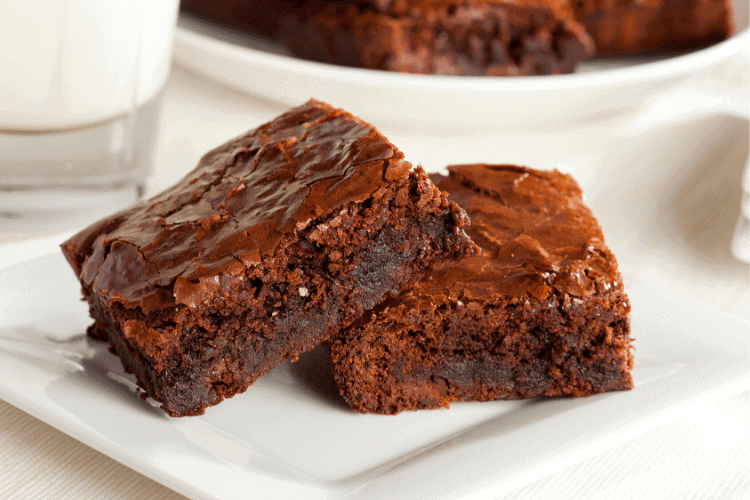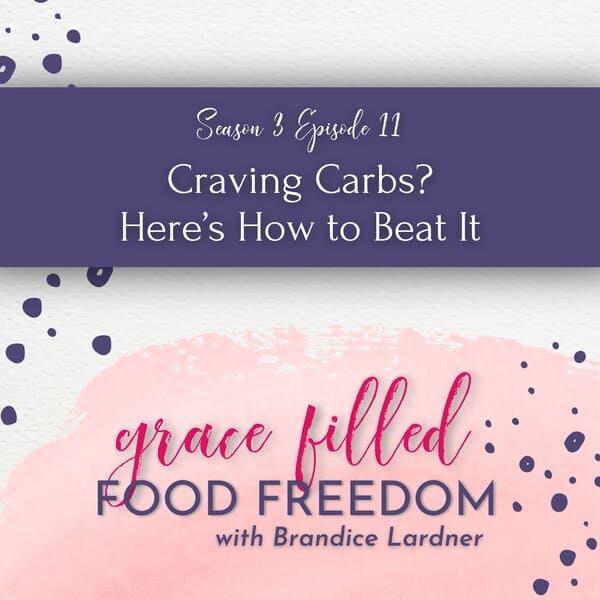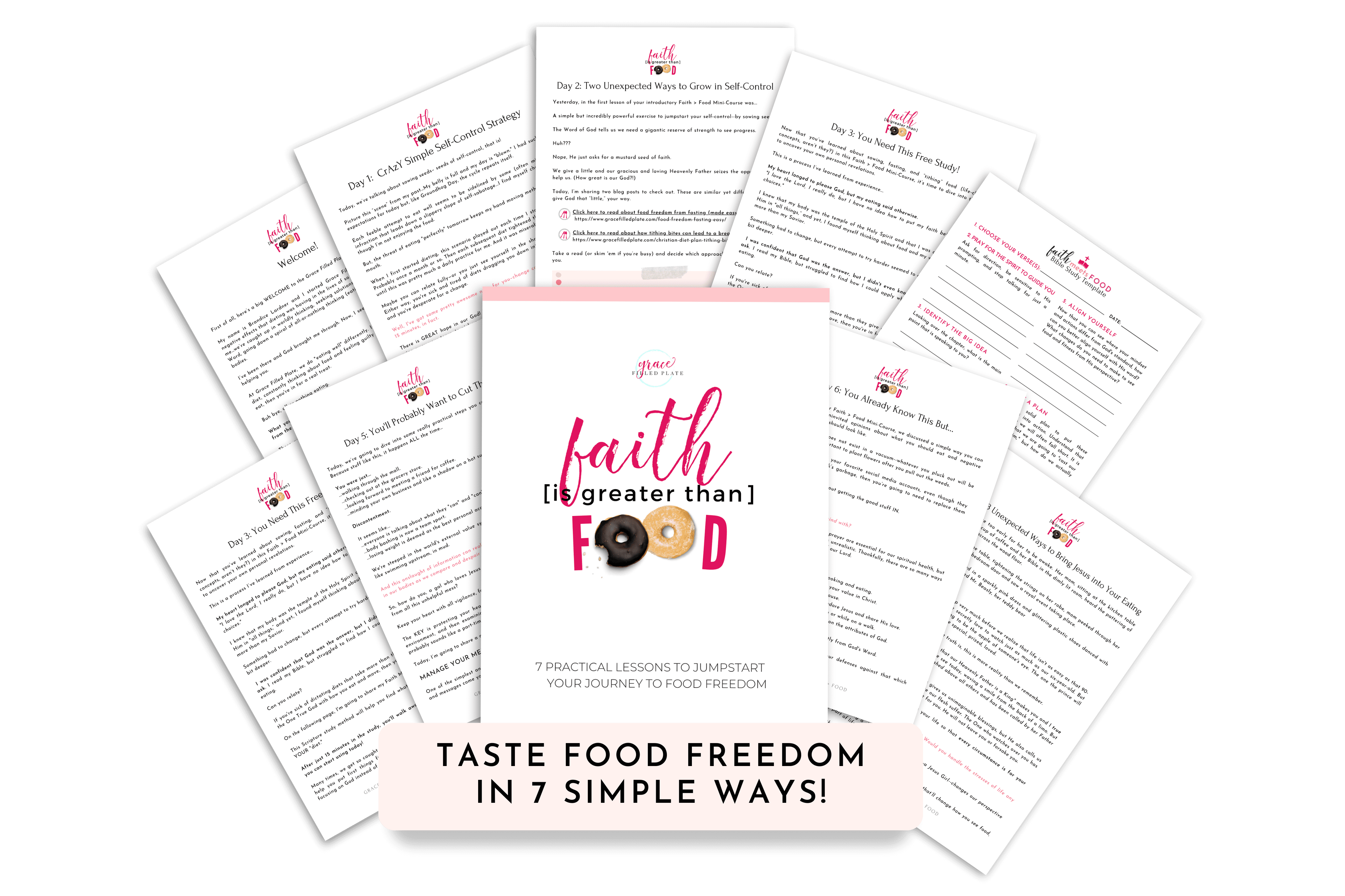Is there really a “best diet”? Find out the 3 questions you’ll want to filter every diet decision through! It’s the reason you fail at every diet…
Jump to this episode’s show notes now.
At least, that’s what you think.
You’re convinced that you should… need to… HAVE TO find the ideal… best… PERFECT diet in order to be successful.
And that thought, well, it’s holding you back.
Today, we’re going to have a fun look at identifying your BEST DIET, and, it’s going to rock your world and set you free!

Does the “perfect diet” actually exist?
We’ve all been there. Searching for that perfect food plan that is going to help us reach our goals and solve all of our problems.
We…
…go to the bookstore.
… consult Diet Doctor Google.
… get lost on Pinterest for hours.
When we finally find the right one, we have hope again. That is, until we dive in headfirst (butter coffee and all) and find out that it, too, is a really bad fit for us.
It’s like when you’re walking past your favorite store and see that beautiful dress on the mannequin. You have to have it! You buy it, take it home, and rush to your room to try it on.
Then you scratch your head and wonder, “What was I thinking?!”
Yep, I’ve been there too, with clothes and food alike. But I want you to know–you don’t have to make that same mistake again. At least not when it comes to food and diets.
There are three criteria to look at when considering a habit change, food plan, or diet.
Best Diet Tip #1: Consider Your History
Your history is richer than that butter coffee, with a goldmine of information. It can give you a helpful idea of what’s going to work for you and…what’s not.
I challenge you to pull out a piece of paper and jot down all of your previous diet attempts:
- What diets have you tried?
- What worked for you in those plans?
- What did not?
This is valuable information that will help you moving forward.
Want an example? Let’s say that you tried a low carb diet and it gave you some results. But, you found it completely and utterly unsustainable.
You couldn’t stand going to the Italian restaurant and staring down the bread basket like an underfed feral cat. So what you learned was that maybe moderating carbs was helpful for you, but completely cutting them out was a disaster.
That particular plan probably caused you some all-or-nothing eating, where suddenly you felt like all carbs are bad. And then it was hard to eat them in a modest amount. So you don’t have true data about what a middle-of-the-line approach could do for you.
Here’s another example: Maybe you tried counting calories. You were so dedicated that you tallied every little bite you ate into an app. Maybe you even weighed and measured your romaine lettuce.
You liked the accountability and that you thought twice before eating something. But it was such a pain, and going out to dinner started to feel like Calculus 101 all over again.
It didn’t fit into your daily life. When friends invited you over to their house or out for dinner, you felt like you had to say no. After all, there’s no way to know what’s in food someone else prepared. Tracking became a nightmare.
Should you count calories? Let’s see!
What did you learn? You learned that additional accountability was helpful. But rigid rules made you want to stop showing up.
Now you can ask yourself, “How can I bring the positives in and ditch the negatives?”
You could track one meal a day, or even one meal a week. This would be your “has my peanut butter serving taken on a life of its own” checkpoint.
Another great option is to take a picture of everything you eat. When you get an afternoon craving, snapping a picture of that random spoon of peanut butter might be just what you need to avoid eating it altogether.
See how that works? You’ve evaluated your past. The information from your previous experience has given you what you need to move forward.
Best Diet Tip #2: Consider Your Food Preferences
Guess what? What you like to eat is actually important! Gasp!
Over time, you may have become disconnected from your preferences because of the all-or-nothing mentality that comes from diet side effects.
Diets make you feel like the only foods you desire are off-limits or on the “bad” food list. But when you take some time to think about it, you might be surprised.
Ultimately, you want to know what kinds of foods you do enjoy.
- What makes you feel good physically?
- What keeps you sharp mentally?
- What tastes do you really like?
Personally, I hate fish. If I have a food plan that requires me to eat steamed trout three times a week, I’m failing before I even start.
You need to use your preferences to inform how you move forward. Take a step back from the diet mentality and stop thinking of any food as off-limits.

If you had the ability to choose anything you wanted to eat, what would it be?
What if you knew that brownies were never going away again? Would you eat them on a daily basis? Or would you feel satisfied to have them once or twice a week?
Consider what foods you like. Be determined and promise yourself that you won’t cut off those foods. Cutting out something you really love is just a recipe for disaster.
When you choose to eat the things you love in moderation, you’ll find it much easier to stick to a plan long-term.
Best Diet Tip #3: Consider What is Sustainable for You
It’s time to ask yourself–what can you actually do for a long period of time? And actually like it. You have my permission to do things you enjoy doing!
- What is sustainable for you and your family?
- What fits into your available time, energy and resources?
- What can you do tomorrow and two weeks and two years from now?
Only you know the answers to these questions.
If it’s not sustainable long term, it’s not going to be sustainable this week. You’re in essence wasting your time because you know that you can’t do this always.
It’s kind of like dating a loser…sure, he buys your dinner, but there’s no way you’d ever marry him. Meanwhile, your godly man is waiting in the wings.

How To Choose the Best Diet for You
As you can see, choosing the healthy changes you want to make involves much more than picking your favorite book cover or the plan that most of your friends are trying. You now have the tools to make informed choices that will protect you from the diet drama.
Moving forward you can filter your potential food changes and diets through these lenses (and, of course, we can pray about our food choices):
- Your personal history: what worked in the past, what didn’t, what you do or don’t want to do again?
- The foods you like: what you want to eat daily, what you look forward to eating, what keeps you from hitting up the drive-thru?
- What you can sustain: what you can do right now, tomorrow, next week, and (hopefully) forever?
If you need more direction on this topic, check out my course Faith and Food Foundations. It will walk you through a step-by-step process of putting your faith into your food choices. It is spiritually based, but also gives a lot of practical help.
Podcast episode show notes
No woman wants to waste her time with the wrong diet. In fact, you probably feel like you’ve already lost so much time on diets that don’t work.
But take heart. If you’ve struggled with dieting failure, this episode will teach you how to find a plan that’s YOUR ideal fit. These simple tips will get your healthy motivation back and help you start fresh, with the focus and commitment you’ve been longing for.
Links mentioned:
- 15 Tips from the Bible to Overcome Overeating Freebie
- For a deep dive, check out Grace Filled Plate Platinum and be sure to get on the waiting list
You may also love:
- Courses [A Chew the Word Study]
- Episode 8: How to Find Food Freedom in 3 Unexpected Ways
- Episode 16: What is the BEST Godly Food Plan to Follow?
Get a FREEBIE:
- Get your FREE Faith [is greater than] Food Email Course
Rather watch? Catch the video on YouTube.
Brandice Lardner is a Certified Personal Trainer, Nutrition Coach, Amazon #1 Best Selling Author, Homeschool Mom, and Jesus Girl whose mission in life is to help women ditch the diet mentality and find peace with food and their bodies so that they are better equipped to do the great things God has called them to do.





Leave a Reply